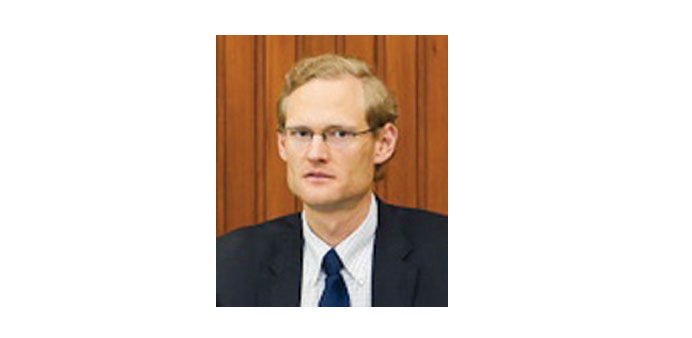By Peter Alagos/Business Reporter
Niche services and products have continued to drive the growth of economic relations between Belgium and Qatar, Belgian Ambassador Christophe Payot told Gulf Times.
“We have the knowledge, experience, and capability to meet the needs and standards that are required for major projects in Qatar. We have companies that specialise in specific sectors, and they are here to contribute to the development of country in line with the Qatar National Vision 2030,” Payot said.
He said Belgian companies have a strong presence in several of Qatar’s major infrastructure projects, including construction works for the staging of the FIFA World Cup in 2022.
In 2012, Zwijndrecht-based dredging company DEME (Dredging, Environmental and Marine Engineering) was part of the $1.23bn reclamation work at the new Hamad Port led by Medco (Middle East Dredging Company). DEME also took part in projects at The Pearl-Qatar and Hamad International Airport.
“Another dredging company, Jan De Nul, was also involved with several projects in Ras Laffan and The Pearl-Qatar,” the ambassador also said.
In the construction sector, Payot said Belgian company, Besix, was part of the building of the Tornado Tower, convention centres in Education City and City Center, The Torch Doha, and Khalifa Stadium, including expansion works in preparation for the World Cup.
“Those companies have been present in Qatar, including the region for several years and have a strong presence in major projects in terms of infrastructure or landmark buildings,” he noted.
According to Payot, Belgium also has companies specialising in the water management or “cleantech” sector and sustainable development. He stressed that there are also co-operation potentials in the health care and energy sector.
“While we are consumers of Qatari gas, we also have the Zeebrugge, an LNG terminal that can be used to import Qatari gas to Europe, not only to Belgium but beyond.
“And we have an important cluster in Belgium for petrochemicals, which is the Port of Antwerp. There is also a lot of co-operation and interaction between Belgium and Qatar on that field but there is also more to be done in that sector. Despite the diversification policy in Qatar, energy remains as an important sector,” Payot said.
According to Payot, trade volume between Belgium and Qatar in 2014 “was quite substantial” with a total of €1.2bn.
“Belgian exports amount to €200mn; the rest are Qatari exports comprising mainly of liquefied natural gas (LNG), which accounts for 80% of Qatari exports.
“This makes Belgium the third largest client of Qatar in the European Union. On the other hand, Qatar is the eighth largest supplier of LNG to the EU. Belgium was the first EU country to buy LNG from Qatar in 2007,” the ambassador said.
Payot said the main products exported to Qatar were machinery and equipment (30%) used mainly for infrastructure projects in the country. The remaining goods include chemical products (18%) and transport equipment and other materials (10%), he added.
From March 21 to 27, a Belgian Economic Mission to Qatar and the UAE will be led by Princess Astrid and other dignitaries, Payot said.
“I hope that through this economic mission there will be more potential, not only for those companies already present here, but also for other companies that also have products and expertise needed in Qatar for this policy of diversification,” he added.

Ambassador Christophe Payot.
